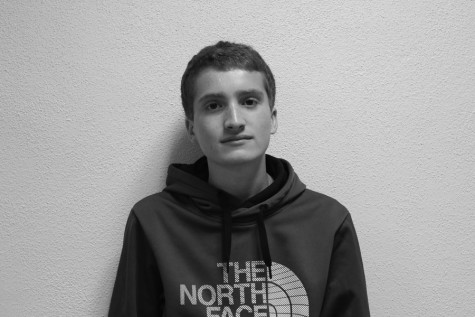English learners gather to discuss equity
Restorative justice circle seeks strengthened voice, image
January 8, 2016
Sophomore Lizyt Balbuena Tapia rarely speaks up in any class outside of the English as a Second Language program, because she feels afraid people will make fun of her accent or grammatical mistakes.
“For example, I’m having a speech in my English class,” Balbuena Tapia said. If I say the wrong word or I pronounce it wrong, they might laugh at me.”
According to English as a second language (ESL) teacher Cory Litzow-Lorentz, her students often tell her about their fear of vocalizing in front of native English speakers.
“They also don’t feel comfortable even saying anything in their mainstream classes because they’re afraid the other students will laugh at them,” Litzow-Lorentz said.
Litzow-Lorentz said her students share a common bond of not speaking English as a first language, so they feel comfortable and safe in her classroom. She hopes, therefore, to work on giving them a voice outside of the ESL setting.
“My goal is for kids to feel like they have a voice in this school. Your voice is important. What you have to say is important,” Litzow-Lorentz said.
After research conducted last year by French teacher Kyle Sweeney for her master’s thesis on diversity in education confirmed many students not fluent in English only feel comfortable in their English-learner classes, Litzow-Lorentz said she began to hold equity discussions in her classes with the help of Chris Weaver.
The discussions continued, according to Litzow-Lorentz, with the second one this year taking place Dec. 16 with a focus on their image in the school community.
“Two questions we focused on were ‘when people look at you, what do they see, and what do you want them to see?’” Litzow-Lorentz said.
Sophomore Sudesh Deonarain came to the United States from Guyana June 19, 2014. As an English-language learner, he said he believes in the importance of holding discussions on the topic of equity.
“(It is) to make sure we feel equal like other students,” Deonarain said. “It is a good thing to discuss about yourself and you learn about other people.”
Litzow-Lorentz said she noticed a common theme in students’ responses during the discussion.
“Most of the students said smart, respectful, helpful — all these really good qualities that these students have but (other) students don’t take the time to get to know them,” she said.
Balbuena Tapia said she thinks other students have a bad impression of her because of the way she dresses or the way she acts, and the language barrier prevents her from proving to them otherwise.
“If you get to know me, you will know that I am nice to you,” Balbuena said.
According to Litzow-Lorentz, she plans to continue to hold monthly equity circles, with the next discussion taking place some time in mid-January. She said she doesn’t expect answers or solutions quickly, but hopes the ongoing process makes an impact.
“I’m just opening the doors for you to either walk through your own or I will walk through with you,” Litzow-Lorentz said.




